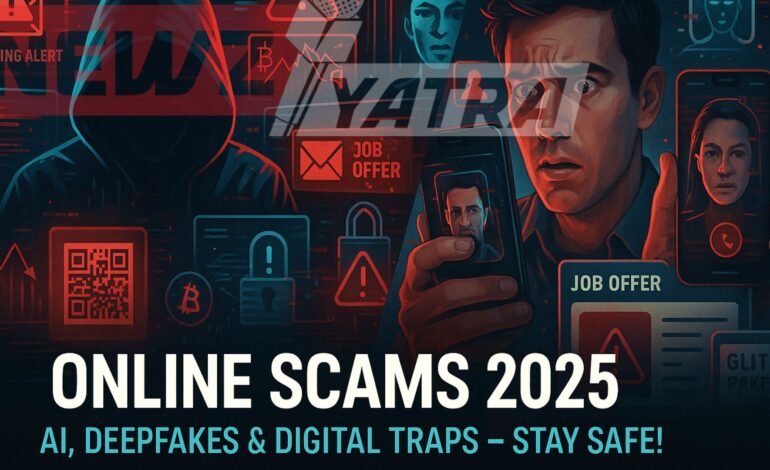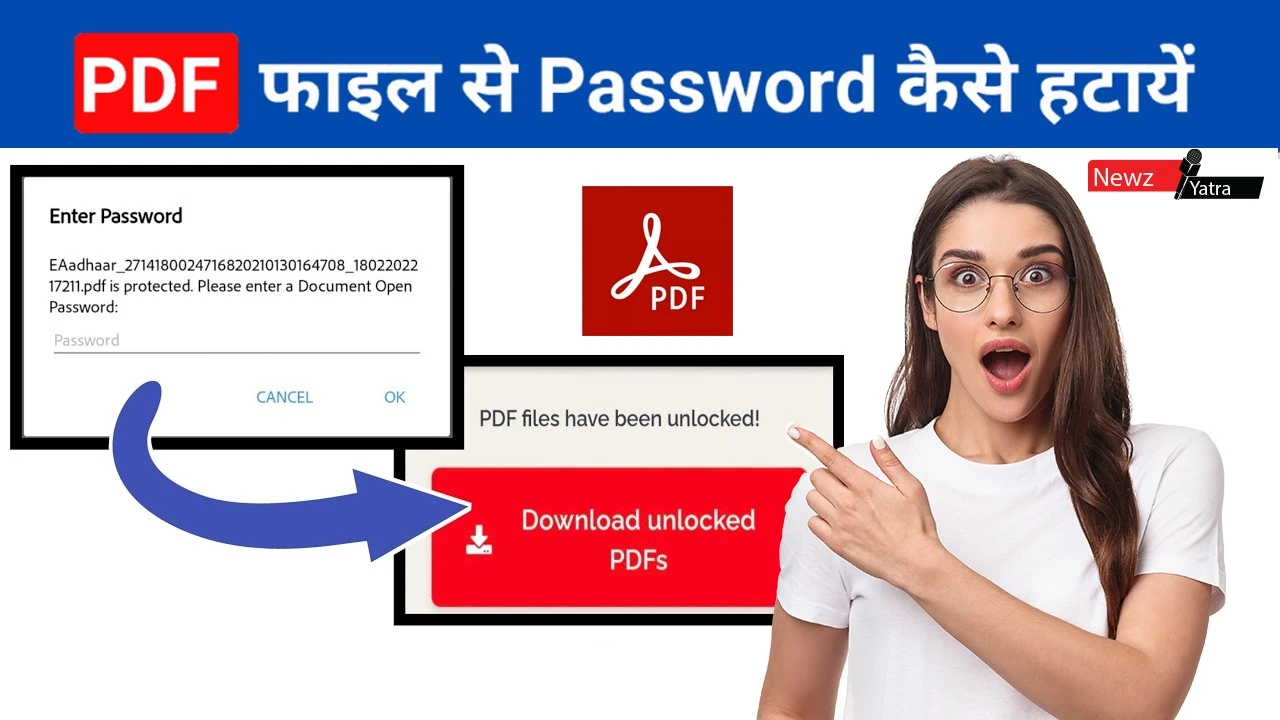Top Online Scams to Avoid in 2025 — Don’t Get Caught!

As technology evolves, so do the tactics of online scammers. In 2025, cybercriminals are more sophisticated, organized, and tech-savvy than ever before. Armed with cutting-edge tools like artificial intelligence, deepfake technology, and highly convincing social engineering techniques, these bad actors are constantly developing new ways to exploit vulnerabilities—both digital and human. (Online scams 2025)
From fake job offers and AI-generated phishing emails to voice-cloned phone scams and fraudulent investment platforms, today’s threats go far beyond the old-school “Nigerian prince” emails. And they’re not just targeting big corporations—everyday internet users, online shoppers, freelancers, and remote workers are all in the crosshairs.
Being aware of these scams isn’t just smart—it’s essential. A single click, download, or reply could cost you your money, your data, or even your identity.
That’s why we’ve put together a list of the top online scams to watch out for in 2025—and more importantly, how you can protect yourself from falling victim. (Online scams 2025)
Top 10 Online Scams to Watch Out for in 2025 — And How to Stay Safe (Online scams 2025)
1. AI-Generated Impersonation Scams (Online scams 2025)
What It Is:
Scammers now use artificial intelligence (AI) to copy someone’s voice or face. They might pretend to be your boss, a friend, or even a family member. You could get a voice message or video call that looks and sounds real—but it’s actually fake.
Example:
You get a voice note from your “manager” asking you to send money to a vendor right away. It sounds exactly like them—but it’s not really your manager.
How to Avoid It:
- Always double-check. Call or message the person through a different app or number before taking action.
- Set up a special word or code with close friends or family to confirm it’s really them in an emergency.
- Be extra careful if someone is asking for money or personal info in a hurry—especially over voice or video. (Online scams 2025)
2. Crypto Investment Scams (Online scams 2025)
What It Is:
Scammers create fake websites or social media accounts that look like real crypto investment platforms. They promise you’ll make a lot of money fast by investing in Bitcoin, NFTs, or other digital coins. Some even use fake AI bots to show fake “live” profits, making it look like your money is growing—when it’s not.
How to Avoid It:
- If it sounds too good to be true, it probably is.
- Only invest through trusted, licensed crypto platforms.
- Don’t believe random messages or posts from people you don’t know—even if they seem famous. Always check if it’s real. (Online scams 2025)
3. Fake E-commerce & Delivery Scams (Online scams 2025)
What It Is:
Scammers set up fake online shops that sell popular items like phones, sneakers, or luxury goods at super low prices. Once you pay, you either get a cheap fake—or nothing at all.
Another trick is sending fake delivery texts or emails saying things like “Your package is delayed—click here to track it.” These links often lead to harmful websites.
How to Avoid It:
- Shop only from well-known and trusted websites.
- Make sure the website has “HTTPS” in the address and a secure payment page.
- Don’t click on links in random delivery texts or emails. Instead, check the courier’s real website or app to track your package. (Online scams 2025)
4. Phishing 2.0 — Smarter, Slicker, Scarier (Online scams 2025)
What It Is:
Today’s phishing scams are much harder to spot. Scammers use AI to write emails that look like they’re from real companies—banks, shopping sites, or email services. These emails look professional and may even pass through your spam filter. They often include links that take you to fake login pages that steal your info.
How to Avoid It:
- Always double-check the sender’s email address—look for small spelling mistakes or weird domains.
- Don’t log in to any site by clicking a link in an email. Type the website address into your browser yourself.
- Turn on multi-factor authentication (MFA) for your accounts. This adds an extra layer of security. (Online scams 2025)
5. Tax and Government Impersonation Scams (Online scams 2025)
What It Is:
Scammers pretend to be from the IRS, tax office, or other government agencies. They may say you owe money and will be fined or arrested if you don’t pay right away. Some even use fake video calls with deepfake technology to make it look more real.
How to Avoid It:
- Real government agencies will never ask for payments through phone calls, emails, or gift cards.
- If you get a message like this, don’t panic. Look up the official number of the agency and call them directly to check.
(Online scams 2025)
6. Job & Remote Work Scams (Online scams 2025)
What It Is:
Scammers post fake job offers—often for remote work—on real job websites or social media. They might say you need to pay for “training,” send personal documents, or make a crypto deposit. After you pay or share your info, they disappear.
How to Avoid It:
- Never pay any money to get a job or training. Real companies don’t charge you to hire you.
- Check if the job is listed on the company’s official website. You can also look up the recruiter’s name on LinkedIn.
- Be careful if a job offers very high pay for little work—it’s usually a red flag.
7. Tech Support Scams
What It Is:
You might see a pop-up that says your computer has a virus and tells you to call “Microsoft” or “Apple” right away. But it’s fake. These scammers want to trick you into giving them remote access to your computer so they can steal your money or data.
How to Avoid It:
- Real tech companies like Microsoft or Apple will never contact you through pop-ups.
- Never let anyone control your computer unless you’re 100% sure they’re from real support—only reach out through official websites.
- Use a trusted antivirus and keep your browser security up to date.
8. Social Media Give away & Influencer Scams
What It Is:
Scammers create fake influencer accounts—or hack real ones—and post about giveaways or free gifts. They ask you to share personal info or pay a small “shipping fee” to claim your prize. But it’s all a trick to steal your data or money.
How to Avoid It:
- Only join giveaways from verified (blue check) accounts.
- Don’t give out personal info like your address, phone number, or card details for online contests.
- If something looks suspicious, report the post or account right away.
9. Subscription Traps & Free Trial Cons
What It Is:
You sign up for a “free” trial of an app or service—maybe an AI tool, a fitness app, or a photo editor. But hidden in the fine print is a catch: after a few days, it turns into a paid subscription, and money starts coming out of your account automatically.
How to Avoid It:
- Set a reminder on your phone to cancel the trial before it ends.
- Always read the terms and conditions, especially the part about payments.
- Use a virtual or one-time-use card when signing up for trials to stay in control.
Quick Tips to Stay Safe Online in 2025 (Online scams 2025)
Staying safe online in 2025 starts with small but powerful habits. First, always turn on multi-factor authentication (MFA) for your most important accounts—like your email, bank, and social media. It adds an extra layer of protection even if someone gets your password.
Make sure to enable alerts for your banking and credit card accounts. These real-time notifications can help you spot any unusual or unauthorized activity immediately. Along with that, it’s a good idea to regularly update your passwords. Use a strong, unique password for each account, and consider using a password manager to keep track of them securely.
Also, be cautious with links—especially those in emails or messages. Before you click, hover over the link to see where it really goes. If something feels off, don’t click. It’s always better to be safe than sorry.
Finally, don’t keep this knowledge to yourself. Talk to your family and friends—especially older relatives who might be more vulnerable online. Helping them spot scams before they happen can save a lot of stress, money, and personal data.

Stay One Step Ahead of Online Scammers (Online scams 2025)
As we navigate an increasingly digital world in 2025, staying informed is your best defense. Cybercriminals are evolving fast—but so can we. By staying alert, thinking critically, and adopting smart online habits, you can protect yourself and your loved ones from falling victim to modern scams. Remember: if something feels off, it probably is. Trust your instincts, verify everything, and always take a moment to pause before you click, share, or send. Online safety isn’t just about technology—it’s about awareness, vigilance, and making smart choices every day.
Take Control of Your Online Safety Today (Online scams 2025)
Online scams in 2025 are smarter than ever—but with awareness and a few smart habits, you can stay safe. Share this guide with your friends, family, and coworkers to help them stay protected too. And don’t forget to bookmark this page so you can come back to it whenever you need a quick refresher.
🛡️ Stay alert. Stay informed. Stay safe.
How to Use ChatGPT to Make ₹1 Lakh/Month in 2025 (No Tech Skills Needed)






